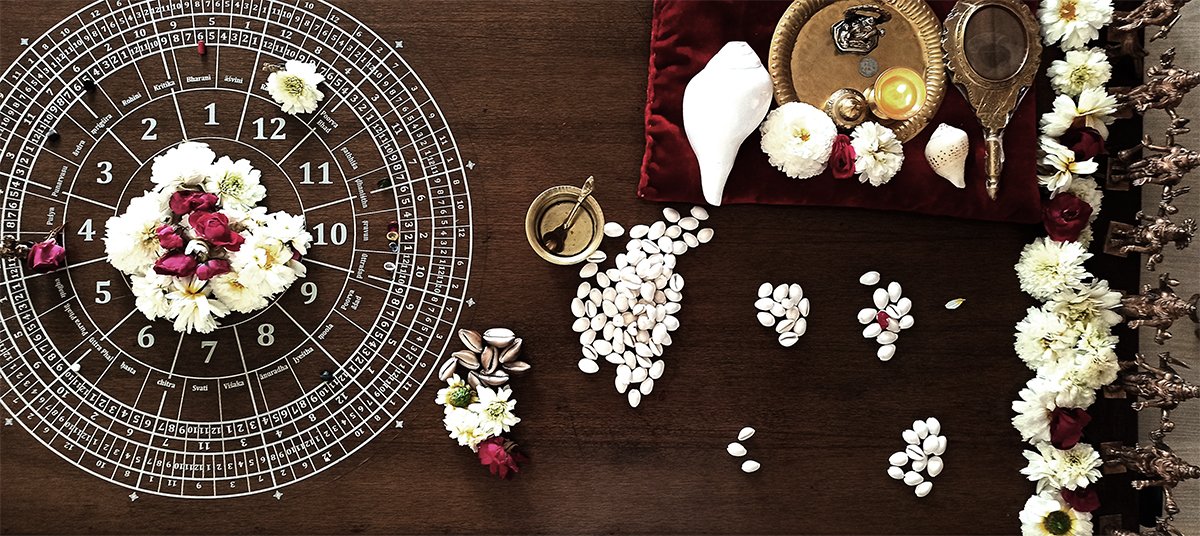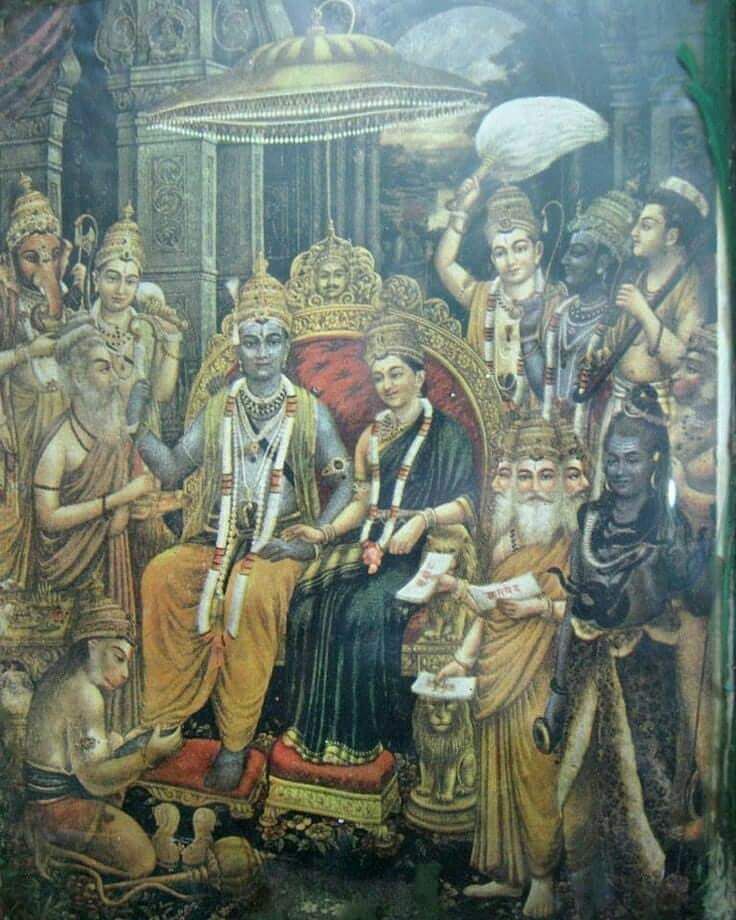
Jyotiśa Praśna and the deities
Usually jyotiśa is considered as simple reading from natal chart which is fine because it can give us good insights into problems. However, in Praśna the deities are invoked and the question of the seeker is put in front of the deities. This is an
Usually jyotiśa is considered as simple reading from natal chart which is fine because it can give us good insights into problems. However, in Praśna the deities are invoked and the question of the seeker is put in front of the deities. This is an

intricate process and people sometimes fail to understand the implications.
You see these Gods and Goddesses are very smart. If you ask them wrong question, you will get the answer but not the right answer.
For example, in a family of five brothers, all their children were
You see these Gods and Goddesses are very smart. If you ask them wrong question, you will get the answer but not the right answer.
For example, in a family of five brothers, all their children were
males. The question was whether they can get a female issue?
To this the answer simply came no. You see the question should have been what is the cause of having male issues only? Or what is the cause of curse and how to remove it? But it was never asked and so the deities do not
To this the answer simply came no. You see the question should have been what is the cause of having male issues only? Or what is the cause of curse and how to remove it? But it was never asked and so the deities do not
bother because they are extraordinarily smart. Deities care about words, you choose wrong words, and you get the muffled answer.
Example 2- Recently during a Pooja, I was requesting the goddess to at least create a rainy atmosphere during the Pooja for two days. The temperatures
Example 2- Recently during a Pooja, I was requesting the goddess to at least create a rainy atmosphere during the Pooja for two days. The temperatures
are stinging high in my area. So the two days were cloudy but with lot of moisture. I felt strong perspiration during prayers but then my asking was wrong. I asked for temperature not moisture.
It gave me a hearty laugh because the devī is very smart. She gave me temperature
It gave me a hearty laugh because the devī is very smart. She gave me temperature
gifting the moisture along with it. I should have asked for pleasant cooler breeze, which off course was my mistake. She laughed at me because of my foolishness.
You see these words are śakti, so you have to be careful. Use exact right words.
Example 3- Some people have ultra-
You see these words are śakti, so you have to be careful. Use exact right words.
Example 3- Some people have ultra-
wrong notions about them. Praśna for them is a wild goose chase. They chant thousands of mantras and chant for hours. They suffer from heavy hallucinations and sometimes from wrath of yoginis and retinue of main deities. These powerful entities give them money and other powers
but they still keep suffering as well.
The Praśna gives us direct interface in their life but they fail to accept it. This is because the upa ḍevthas cloud their judgement and their own notion about their so called Sadhna. A true devotee never keeps chanting, it is simplest
The Praśna gives us direct interface in their life but they fail to accept it. This is because the upa ḍevthas cloud their judgement and their own notion about their so called Sadhna. A true devotee never keeps chanting, it is simplest
stupidity to consider chanting as some tapasyā.
Though, Sadhna if done in proper way can give you many things but it is still not Bhakti. A true sadhak is powerful because he invokes and binds the ḍevthas to mantra. However, sadhak is not a saint. Neither a sadhak can be
Though, Sadhna if done in proper way can give you many things but it is still not Bhakti. A true sadhak is powerful because he invokes and binds the ḍevthas to mantra. However, sadhak is not a saint. Neither a sadhak can be
labelled as good. Endless chanting and scriptural knowledge only labels one as literary and brilliant. However these true sadhak also suffer. The history of Kerala is filled with such sadhak and actual saints. You will see the differences in their life. A true sadhak binds the
ḍevthas, he is not a devotee or lover. When the sadhak becomes weak or does something wrong, everything boomerangs with force.
A true devotee is different. He loves God. God lives with that devotee because he is not bounded. The order of these saints are above all these
A true devotee is different. He loves God. God lives with that devotee because he is not bounded. The order of these saints are above all these
sādhakas put together. It is the reason, why Sri Ramaṇa asked a scholar to unlearn everything he has learnt. Because if you need love of God, don’t put your cloudy brain inside.
The Praśna can never work for them, because they have clouded judgement. They often ask questions in
The Praśna can never work for them, because they have clouded judgement. They often ask questions in
wrong manner, then suffer from wrong answers.
A true pundit is one who loves, not the one who chants and reads scriptures. This is the most common misunderstanding. So there are many examples, powerful sādhaka having great powers but enticed by money, plagiarism etc. Gurus,
A true pundit is one who loves, not the one who chants and reads scriptures. This is the most common misunderstanding. So there are many examples, powerful sādhaka having great powers but enticed by money, plagiarism etc. Gurus,
having their own messed up Sadhna.
Example- Question- When will I ever stabilize my career?
Answer- See the question is when will the career stabilize. So suddenly Ārūḍha has Saturn and the answer is ten years. So will the questioner wait? Was this the right question? What
Example- Question- When will I ever stabilize my career?
Answer- See the question is when will the career stabilize. So suddenly Ārūḍha has Saturn and the answer is ten years. So will the questioner wait? Was this the right question? What
will he do for ten years?
The question should have been, what is the cause of instability in career, which was never asked. See deities never bother about depth, they answer in clear and precise words. So before asking Praśna, one should see what they are asking.
The right way
The question should have been, what is the cause of instability in career, which was never asked. See deities never bother about depth, they answer in clear and precise words. So before asking Praśna, one should see what they are asking.
The right way
is to meditate on questions which people do not bother about before asking. All they care about is their raga for life and so they get all wrong answers as well.
Deities or God can never be outsmarted in any way. He created us, we did not create God. At least be honest with God,
Deities or God can never be outsmarted in any way. He created us, we did not create God. At least be honest with God,
but still people do not care. This is the most important thing which I have mentioned many times to questioners, but nobody pays any attention to it.
@threadreaderapp unroll
• • •
Missing some Tweet in this thread? You can try to
force a refresh









